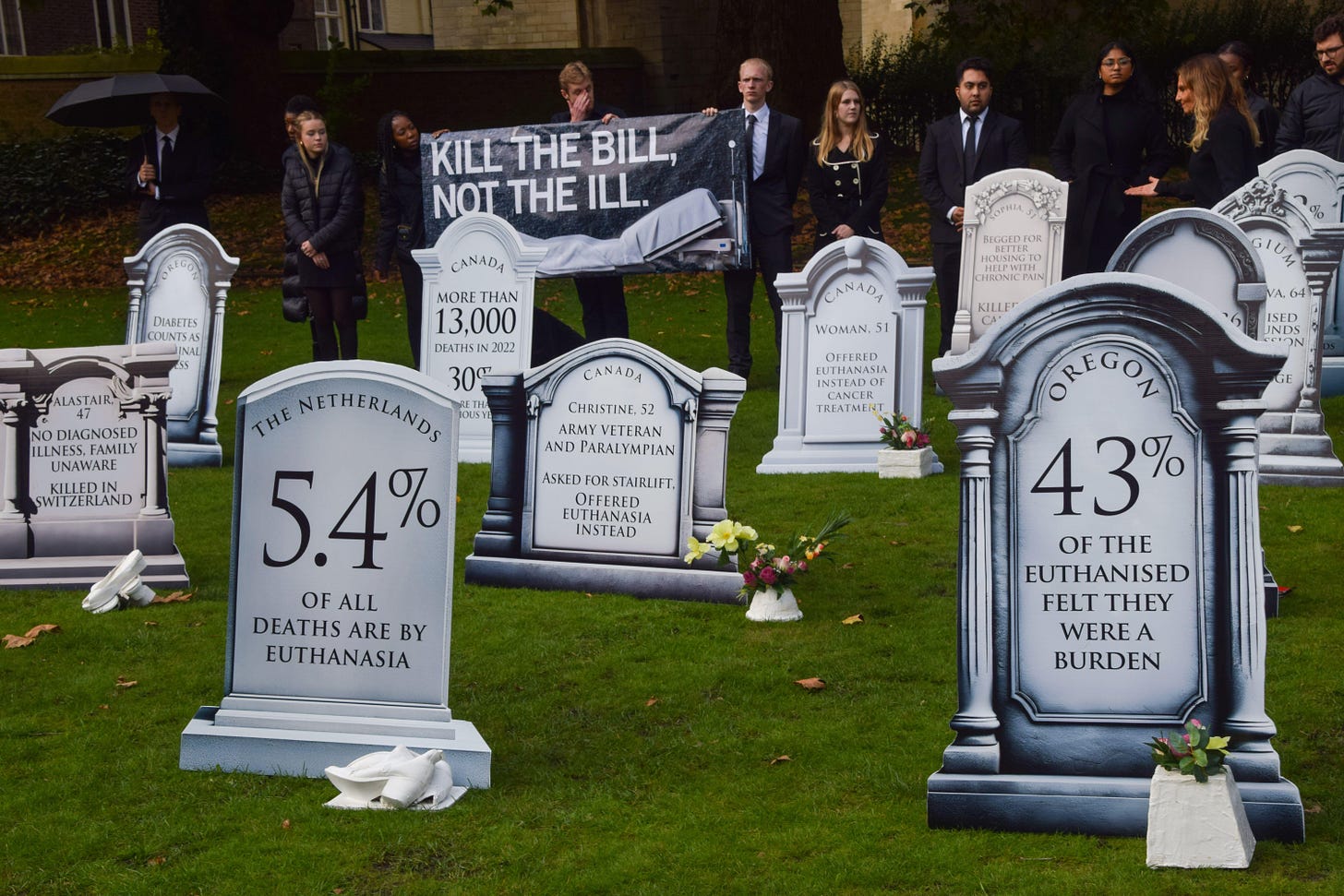Assisted Dying: the grim lesson from countries that have introduced it
There's a good reason why even health secretary Wes Streeting is refusing to support the bill

The relentless lobbying by pressure groups for the legalisation of assisted suicide has reached another crescendo with the publication of Kim Leadbeater’s Terminally Ill Adults (End of Life) Bill, which Keir Starmer intends to rush through Parliament. The original intention was to do so, aided by the impetus created by a recently acquired landslide parliamentary majority; however, the sequence of disasters that has been the first four months of Starmer’s government has wrenched the wheels off the presumed juggernaut, blunting the momentum.
Nevertheless, a large majority of Labour MPs, who are generally predisposed to support “progressive” measures, as well as to curry favour with their party’s leadership, suggests a more favourable environment for Leadbeater’s sinister proposal than was the case nine years ago when a similar measure was defeated in the House of Commons by 330 votes to 118. Since then, there has been a further deterioration in respect for human life, as a culture of death expands its outreach across the developed world.
The pattern is familiar: a reassuring, restrictive title for the measure, implying that it applies only to people whose deaths are imminent; a chorus of insistence that rigorous safeguards are embodied in the legislation; and the implication that it will only be implemented in a small number of cases, to avert acute suffering.





